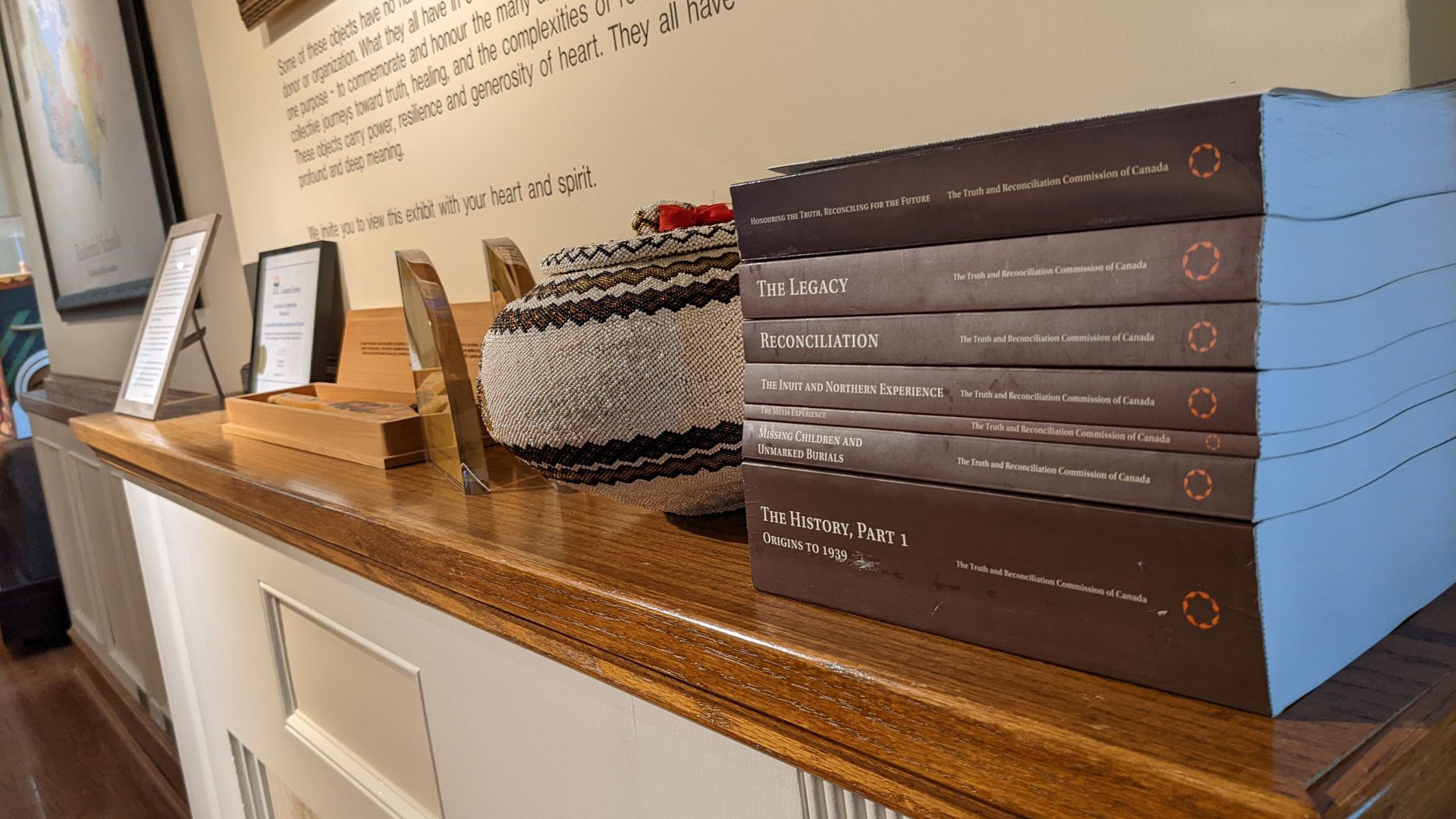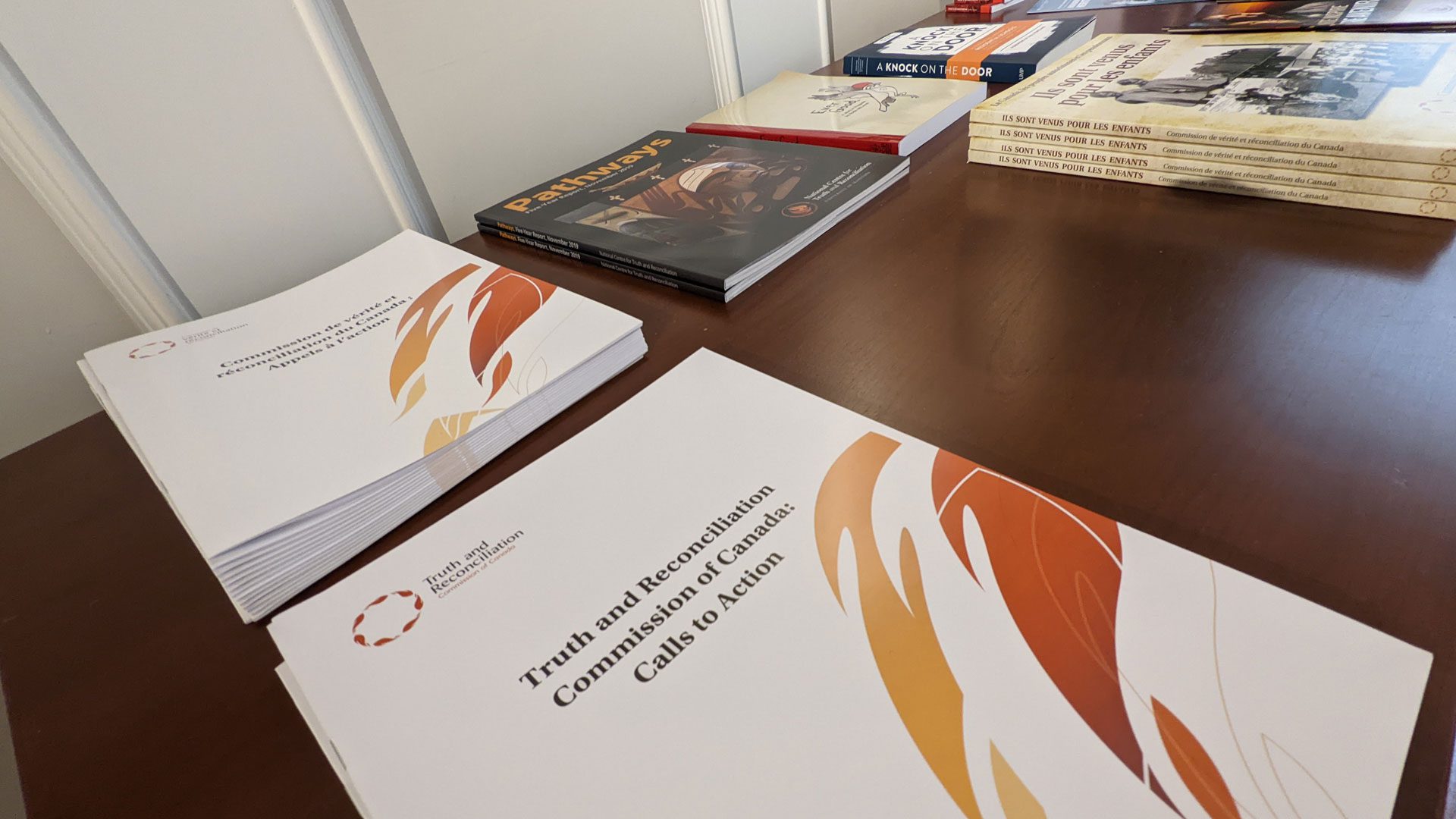A founding member of the Children of Shingwauk residential survivor group and longtime member of the National Indian Residential Schools Survivor society says the Indian Residential Schools Settlement Agreement (IRSSA) needs to be re-opened.
Mike Cachagee says with the discovery of unmarked graves at former school sites across the country during the last year, now is the time to revisit the details in the IRSSA.
Cachagee, working with retired Algoma University professor Edward Sadowski, has been looking through old records in the national archives, trying to learn more about how the students were affected by the school system.
They found more than they expected.
“It was a little bit bigger and larger than we thought. What we’ve been doing with it is sending this out to the different interested groups across the country, and we’ve sent some out to people out in western Canada, the people in Thunder Bay, the Haudenosaunee people, and up in northern Quebec,” Cachagee said. “They’re all aware of what we found and one person in particular there, he was very adamant that we re-open the settlement agreement,” Cachagee said.
In July 2021, two months after the unmarked graves at the former Kamloops residential school were discovered, Cachagee and Sadowski circulated a report on their findings.
Cachagee said the Indian Affairs archives – referred to as RG-10 files – reveal clues to other problems related to residential schools that the settlement agreement did not address. And some of them are startling.
“If this thing really started to roll, there would be a lot of implications, a lot of ramifications. It would ripple across Canada as a whole. The whole legal world would shake, you know, because of what’s happening here,” he said.
The report raises a number of issues. For example, the common experience payment or CEP was paid to anyone who could prove they attended a residential school. The agreement called for all former students to receive $10,000 for their first year in school and $3,000 for each additional year.
But, according to the government’s own numbers, close to one-quarter of the applicants – almost 24,000 people – were rejected, usually because the records that would confirm their time in school were not available.
That led to a $329 million surplus – money that was not shared amongst the survivors. That’s about one-sixth of the $1.9 billion that was set aside for compensation.
“What happened with the [Catholic] Church withholding records? How much of that $1.9 billion dollars would have been dispersed if the records had been available? So every time we look at one of these facts, it all reverts back to the withholding and the lack of availability of proper records for the survivors,” Cachagee asked.
Even more shocking, the researchers found that treaty annuities for the children were often paid to the school, not the student.
Cachagee said that meant the survivors were subsidizing their own time in the schools.
“If you look back at it, it was probably used to bury some of the children, too,” he added.
He said that money belonged to the students.
“When the treaties were completed, they were deemed sacred. The reason why they were deemed sacred by our people was that after each of the treaty, the meetings concluded, the pipe was smoked and the pipe was smoked and by the pipe being smoked after the treaty discussions, the establishment of a treaty, it made it sacred,” he said,
“That means the terms and conditions contained in that treaty were sacred, and in the treaty, it’s very, very specific that they’re to pay everyone that’s beneficiary of the treaty an annuity of four or five-four to five dollars or whatever else mentions it in perpetuity doesn’t say to take it and send it to the school.
“It doesn’t take it, you know, it’s paid directly to the beneficiaries, which were the children. Now for the government to take it upon themselves and do that, that’s a serious, serious violation of our treaty relationship. Never mentioned again in the settlement agreement.”
Cachagee is calling for a forensic accounting of these monies.
“Yeah, you know, when we put this research package together with our researcher there, Ed Sadowski, it’s quite revealing. It takes a little bit of time to read through and filter it out. But when you start looking back and you can see all the failings of the settlement agreement, it basically reinforces what we said from day one,” he said.
“We, as the survivors, the organization, the National Indian Residential School Survivors Society, when they signed that off in Ottawa, we went down trying to get it stopped because we weren’t happy with it because it had no reflection at all on what was told to us and what we thought the way it was going to be crafted.”
Cachagee said the settlement agreement should be re-opened to address old developments and new.
“It was a sweetheart deal for lawyers, and that’s what it basically was, and the victims again were the residential school survivors’ society, or the residential school survivors. And anyone that’s knowledgeable, that has taken the time to look back at the settlement agreement, they can understand that and a lot of them are really, really concerned and wanted to go ahead and see if we could re-open it,” he told APTN Investigates.
Cachagee said Canada’s role as administrator for the settlement agreement led to serious conflicts of interest on the government’s part.
“You look back at our research and there was a series of exchanges, but when an issue became critical, that there was a strong possibility that that was going to cost Canada large sums of money because they were administering the, excuse me, while they were administering the settlement agreement, they had the ability to hijack and curtail or put restrictions on certain areas of discussion and topics,” he said.
“If something became too hot for them, they had they had their own way of shutting it down, and that’s why throughout the payments and throughout the IAP, there was very very little discussion. The organization I worked for in Ontario, we did over 3,000, maybe 4,000 health support hearings and every now and then you’d hear during those hearings, they were very confidential, but you’d hear discussions and statements made about someone passing away when they were there.
“But that’s all. Then the conversation would be would be set aside because it didn’t have anything to do with that person’s own claim. So they controlled that. And again, by them controlling it, there was restrictions put on what we could discuss and one of them was the missing graves.”
The report said the justice ministry has records that could help locate lost or missing children, including possibly those who died in the schools.
“The Department of Justice has records that have not been accessed by researchers,” the report said.
APTN asked if they found in their research that the Justice Department is preventing access to information that would help fill in some of the blanks.
“Big time. We wanted to get the pay lists. If you can get the pay list for the treaty monies, it would give us the names of a lot of those children that were buried there, but they refused to do that under the Privacy Act,” he said.
“So this whole settlement agreement, it says it’s Indian . . . INAC or Indigenous Affairs Canada, it’s the department of justice, they’re the ones that really administer the terms and conditions and the parameters of which the settlement agreement functioned and what was paid out, how it was paid out, and they made all the decisions on it.
There were many horror stories told by survivors about their experience with the Independent Assessment Process more commonly known as the IAP.
Cachagee says there is still a lot of accountability to be had regarding the settlement agreement.
“The way the IAP hearings worked, there was a high degree of confidentiality and what they were supposed to do, they’re supposed to also apply and provide a high degree of comfort for the survivors or for the claimants. Some did, some didn’t. Depending on who the adjudicator was, and some adjudicators were excellent and some of them were horrible.
“I can remember my first adjudication, one of my first adjudication hearings I did. The adjudicator came in on the Greyhound bus from Winnipeg and it was in Kenora, Ontario. They brought the old man and he was 82. His wife accompanied him, she was 83. The translator never showed up, and the guy that drove the [wheelchair transit bus], ended up doing the translation. He wasn’t a trained translator, but the man was in a wheelchair.
“I think, was in the Comfort Inn in Kenora. At that time they didn’t have wheelchair accessibility. So we’ve got him in, we’ve got him into the hearing room and they went through the adjudication. There was no Kleenex, there was no nothing for the old man to drink. He was diabetic. It was just it was just a mess.
“But the part that got to me that really got to me was the old man had to use the bathroom. He couldn’t get into the bathroom because it wasn’t wheelchair accessible. So what they did is they bought a water bottle out. And they gave it to the old man. They told him to pee in it. You know, here’s a man that’s suffered the worst indignity, as a child. He goes through this process, hoping at the age of 83, he’s going to find some closure and some comfort, and he’s going to be treated decently and this is how the system treated him.
“It was absolutely horrible. Well, I blew a gasket. I blew a gasket and I got back and I thought, oh, well, when this thing gets back when this gets back to the IAP Secretariat, the phone call we made, they’ll say ‘[the adjudicator’s] unsuitable for this.’ But all we got back was apologies from everyone acknowledging how the system had failed them and that’s just one of the things that we’ve dealt with over the years.
“And that old man passed away and the translation was incomplete because I caught a lot of it and you couldn’t blame the translator because he wasn’t trained in that area. And that happened all across the country. So, you know, and I don’t even know if the old man received his proper his proper level of payment back. So, you know, these are the things that happened.














